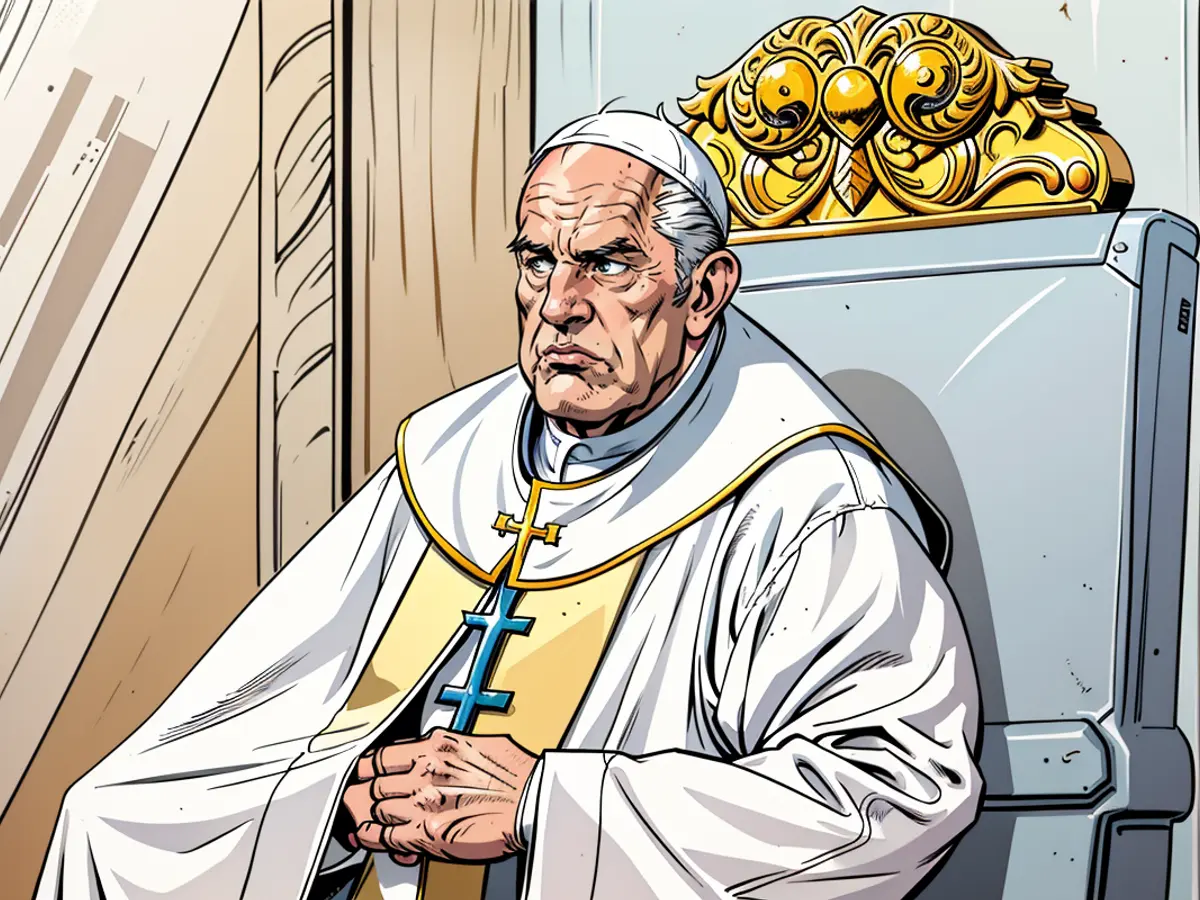The Pope expels a bishop and nine other individuals from a Peruvian religious group due to allegations of sadistic misconduct.
The action against the leadership of the Sodalitium Christianae Vitae, or the Sodalitium of Christian Life, ensued following Pope Francis' decision last month to expel the group's founder, Luis Figari, after it was discovered that he had sexually assaulted his recruits.
This news was announced by the Peruvian Bishops Conference, which published a statement from the Vatican embassy on its website.
The statement was surprising due to the fact that it disclosed abuses unveiled during the Vatican investigation, which are rarely, if ever, punished canonically – such as unauthorized access to someone's digital communications – and named the individuals deemed responsible by the pope.
This move is likely to be celebrated by some of the victims, who spoke to CNN earlier this year, and had urged the Vatican to take serious action against the perpetrators after years of impunity.
According to the statement, the Vatican investigators uncovered physical abuses, including with sadism and violence, sect-like manipulation of conscience, spiritual abuse, misuse of power, financial mismanagement, and the misuse of journalism for attacking critics.
The latter was presumably aimed at a Sodalitium-linked journalist who had been attacking critics of the movement on social media.
Figari established the movement in 1971 as a lay community aimed at recruiting “soldiers for God,” one of several Catholic societies formed as a conservative response to the left-leaning liberation theology movement that gained traction in Latin America beginning in the 1960s. At its peak, the group had about 20,000 members across South America and the United States, and had a significant influence in Peru.
Complaints of Figari’s abuses were made to the Lima archdiocese in 2011, and there were additional reports of similar misconduct dating back to 2000. However, neither the local church nor the Holy See took meaningful action until one of the victims, Pedro Salinas, wrote a book with journalist Paola Ugaz detailing the twisted practices of the Sodalitium in 2015, titled “Half Monks, Half Soldiers.”
An outside investigation commissioned by the Sodalitium later found that Figari was “narcissistic, paranoid, demeaning, vulgar, vindictive, manipulative, racist, sexist, elitist, and obsessed with sexual issues and the sexual orientation” of Sodalitium members.
The investigation, published in 2017, revealed that Figari had sexually assaulted his recruits and forced them to engage in sexual acts with each other. He enjoyed watching them endure pain, discomfort, and fear, and frequently humiliated them in front of others to maintain control over them.
Despite these findings, the Holy See declined to expel Figari from the movement in 2017 and merely directed him to live apart from the Sodalitium community in Rome and discontinue all contact with it. The Vatican was reportedly constrained by canon law that did not foresee such penalties for the founders of religious communities who were not priests. Survivors were outraged.
However, the latest Vatican investigation found that the abuses went beyond Figari and involved Sodalitium clergy as well as the harassment and unauthorized access to the communications of their victims, while covering up crimes committed as part of their official duties, according to the statement.
The investigation was carried out by the Vatican’s top sex crimes investigators, Maltese Archbishop Charles Scicluna and Monsignor Jordi Bertomeu, from the Dicastery for the Doctrine of the Faith, who traveled to Lima last year to hear testimony from victims.
The highest-ranking individual ordered to leave was Archbishop Jose Antonio Eguren, who was forced to resign as bishop of Piura in April after suing Salinas and Ugaz for their reporting.
In addition to Figari’s own abuses, their reporting had exposed the alleged forced eviction of peasants on lands in Eguren’s diocese by a Sodalitium-linked real estate developer.
Journalist Ugaz welcomed the decision to expel the 10 individuals and said the reference to Sodalitium hacking referred to her: She claimed that her communications had been hacked in 2023 after she reported on the Sodalitium’s off-shore holdings and other financial dealings, and believed the group was trying to find out her sources.
“It is demonstration that in Peru, survivors would never have found justice and reparation (without Bertomeo and Scicluna) because the Sodalitium is an organization with a lot of political, social, and economic power,” she said in a statement to The Associated Press.
The Vatican, in the statement, said that the Peruvian bishops joined the pope in seeking forgiveness from the victims while urging the troubled movement to embark on a journey of justice and reparation.
There was no immediate response to a request for comment from the Sodalitium.
This decision by the Vatican to expel Figari and other members of the Sodalitium is significant not just for the Americas, but for the world, as it sets a precedent for handling such cases of abuse and misconduct within religious communities.
The expulsion of Figari and other members from the Sodalitium is a major blow to the group, whose influence has been felt not only in Latin America but also in the United States.








